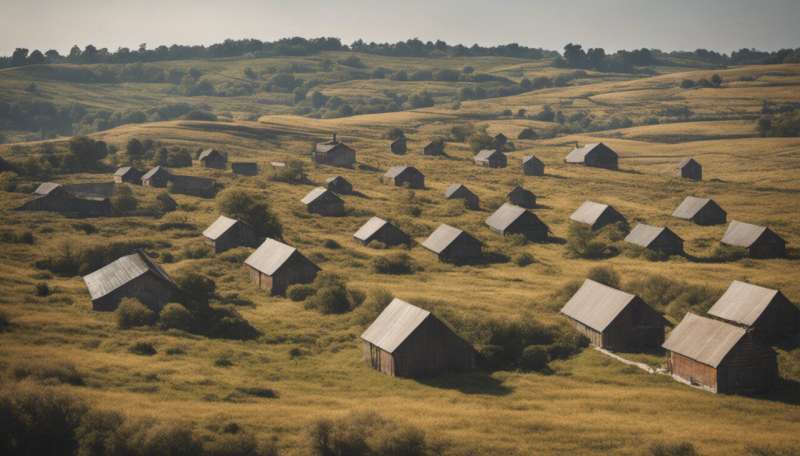Australian rural communities under-resourced to take on refugees

As Australia continues to take on refugees from Ukraine, education experts are calling for essential supports as new research from the University of South Australia shows that rural and regional schools can be under-resourced and ill-prepared to support refugee children and their families.
In a review published in the International Journal of Inclusive Education, UniSA researcher Jennifer Brown found that rural schools are key sites of support for refugee students and their families, but too often operate in racialized communities that are unfamiliar with diverse student needs.
She says Australia's policy of settling refugees into rural areas must be accompanied with thoughtful, timely, and relevant access to professional learning for staff.
"In Australia and around the world, refugee resettlement policy favors a 'dispersal' approach, where refugees are settled into rural and regional locations as a means of extending populations from metropolitan centers and rejuvenating rural locations," Brown says.
"Rural schools are on the front line of resettling refugees, yet many schools feel under-supported and uncertain about how best to help. So, while current policies are dispersing refugees across rural areas, they're not accounting for, nor proving appropriate support to schools, services, and communities.
"Consequently, refugee children and families are not receiving appropriate help or support. Worse still, many face racialized attitudes from within the community, views that are often mirrored in schools."
Brown's study is located within a broader Australian Research Council Linkage Project examining how schools foster refugee student resilience. Under the leadership of UniSA researchers including refugee education expert Dr. Melanie Baak, the project examines the schooling policies, structures and practices that will enable resilience and success for refugee students.
Dr. Baak, says that to create change, policymakers must better understand the nuances of regional and rural communities and help them welcome refugees.
"Understanding the unique needs and strengths of refugee-background students and their families is central to enabling schools to support these new populations," Dr. Baak says.
"Unless communities are properly educated and aware of the benefits of diversity and the plight of refugees, we will continue to deliver sub-optimal services.
"Appropriate resourcing for rural schools is a starting point, but training and opportunities for intercultural learning and engagement must also occur within communities if we are really to deliver change."Motivating public engagement for at risk groups: The case of refugees
No comments:
Post a Comment